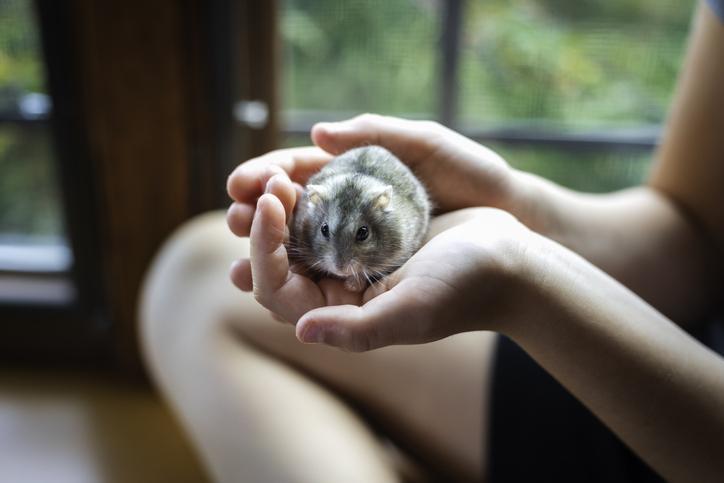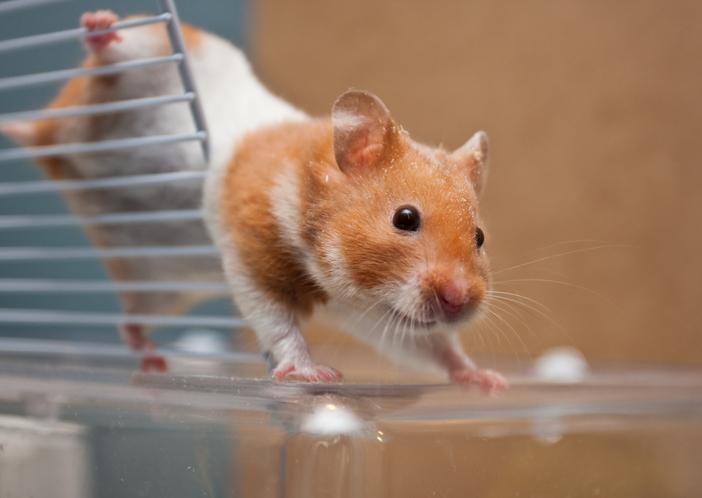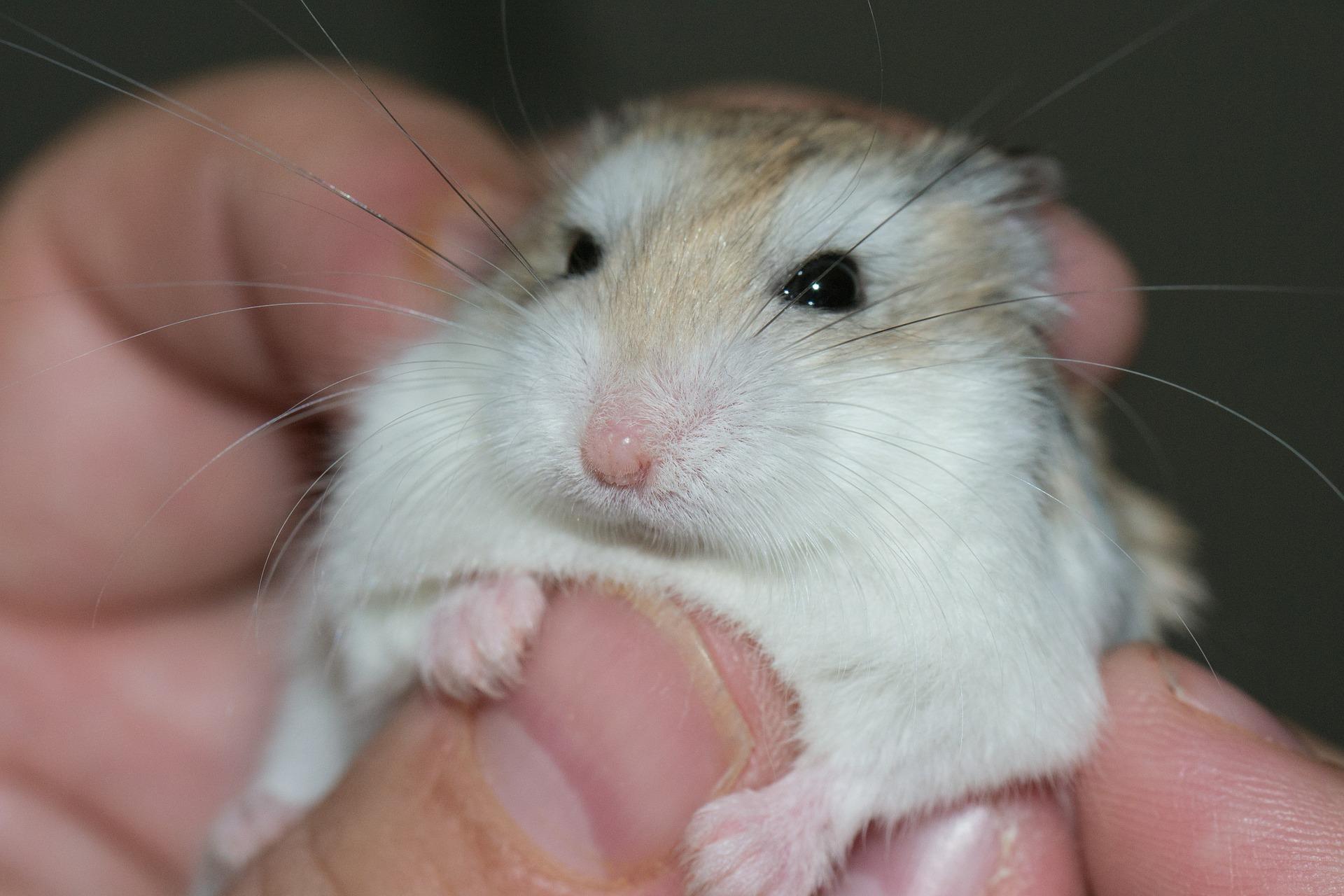Is My Hamster Dying? - Causes and Symptoms



See files for Hamsters
One of the things you should know before before adopting a hamster is that a hamster’s life expectancy is much shorter than that of other pets, such as dogs, cats, rabbits or turtles. These small rodents are incredibly sensitive, they get sick easily and tend to suffer from sudden alterations within in their environment.
If you’re wondering, ‘‘Is my hamster dying?’’ this article is for you! Here at AnimalWised we’ll be listing the most common symptoms and causes of a hamster dying. As sad and sensitive as this information may be, it’s necessary to know in order to detect health problems early enough to act in time.
How long do hamsters live?
In general, a hamster’s life expectancy is between 2 and 3 years. For a more precise estimate of how long a hamster lives, it is necessary to consider different internal and external factors when it comes to a hamster’s organism:
- The type of hamster that you decide to adopt.
- The quality of diet and care with which you provide your hamster.
- The environment in which your hamster lives as well as environmental enrichment.
- How much physical activity and mental stimulation it receives.
- The hygiene of its cage and environment.
A hamster’s life expectancy will depend on these above mentioned factors. Therefore, if you are wanting to adopt a hamster, you need to make sure that you offer it enough mental and physical stimulation, a high quality feed and proper hygiene. For more, we recommend reading our article where we discuss in more depth how long do hamster live for.
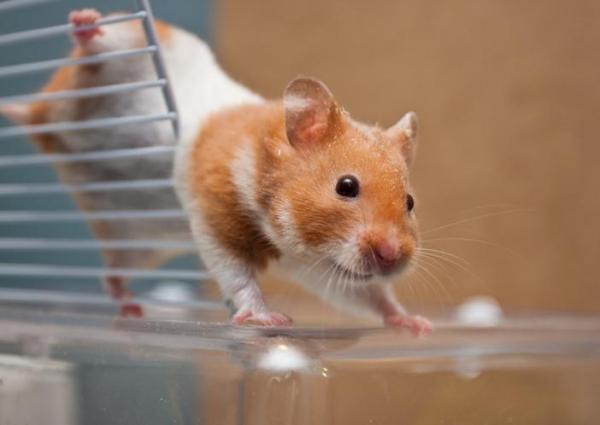
Hamster died suddenly: causes
As we’ve already mentioned, hamsters are incredibly sensitive animals that are easily affected by pathogenic microorganisms, sudden changes in their routine and within their environment, among others. Therefore, the causes of a hamster dying may vary.
If a hamster is surrounded by a quiet and calm environment, receives a balanced diet, is surrounded by an enriched cage and lives and active life, it’s death will likely be rooted in natural causes. These causes are often more than likely related to the inevitable process of aging.
However, there are also many common hamster diseases that, if not treated properly, can result in an early death. A poor hamster diet can also lead to the death of a hamster. Nutritional deficiencies can weaken a rodent's immune system, leaving it exposed to all kinds of different pathologies. In addition, poor cage hygiene also favors the proliferation of pathogens that put a hamster’s survival at risk. For more on how to make sure your hamster lives in a healthy environment, we recommend reading our article where we offer a step by step guide on preparing a hamster’s cage.
It is also important to mention that hamsters are predisposed to the development of stress. This is because hamsters must remain constantly alert within their environment, able to detect any possible threats and act quickly. This is why a negative and stressful environment, with noises and/or excess stimuli, can often cause stress in hamsters. For more, we recommend reading our article where we list the most common stress symptoms in hamsters.
Additionally, a lack environmental enrichment whereby the hamster cannot exercise enough, can also impact a hamster negatively and lead to obesity in hamsters. Without enough exercise, hamsters can also suffer from additional diseases and alterations in their behavior, such as depression.
Last, but definitely not least, is the fact that hamsters are incredibly sensitive to temperature changes. Hamsters, if not offered the appropriate care, can easily fall victim to hypothermia and/or heat stroke. To avoid this, make sure you place your hamster’s cage in a well regulated space of the house, away from wind currents and direct sun.
Hamster dying symptoms
The top 5 symptoms of a hamster dying include:
- Hamster not eating or drinking: lack of appetite is one of the most frequent symptoms of diseases in hamsters. A dying hamster will not show interest in eating food or drinking water. You may also notice rapid or marked weight loss as well as signs of dehydration. For more, we suggest taking a look at our article where we discuss causes of a hamster not eating or drinking.
- Hamster not moving and is apathetic: inactivity and apathy can be symptoms of both disease and stress in hamsters. But unlike a stressed rodent, a dying hamster is usually unable to move or has a hard time reacting to stimuli from its surroundings.
- Pain: sick hamsters usually show signs of pain and discomfort, such as hypersensitivity and refusal to being touched or picked up.
- Alterations in behavior: a hamster’s state of pain and vulnerability can produce behavioral alterations in hamsters, which can cause them to be more fearful, aggressive and/or nervous than usual.
- Alteration in vital signs: if a hamster is dying, there will be an alteration in its vital signs. It’s breathing will appear choppy, its heart rate will feel slower and there may be a decrease in body temperature. A hamster’s capillary refill time will also increase and its mucous membranes will take more than 2 seconds to regain their normal color. In cases of poisoning or severe oxygenation problems, the mucous membranes may also appear in an abnormal color, whitish or bluish.

My hamster is dying: what to do
If you notice any of the above mentioned symptoms of a hamster dying, we recommend consulting a veterinarian as soon as possible. If, however, you have already confirmed that your hamster is going to die, make sure to offer it a calm and loving environment. Avoid making sudden movements, steer away from loud noises and avoid manipulating your hamster. If you do not feel ready to experience this transition alone, we recommend asking for help from a friend or family member.
My hamster is dying: what should I do
Because hamsters are such sensitive animals, they tend to suffer a lot in their last days of life. Because of this, some tutors wonder if it is possible to help a hamster die in a less painful way. Assisted euthanasia can only be administered safely by a veterinarian. Therefore, if you wish to take this path, we recommend consulting your veterinarian and never use homemade methods to help your hamster die. These methods are not safe and effects can be adverse.
Is my hamster dead?
When a hamster is dying, its breathing will be more agitated, choppy and its pulse will begin to diminish progressively until exhausted. It is also possible that your hamster may suffer from tremors or a stiff jaw.
Signs of a dead hamster include:
- No apparent breathing or movement.
- Released sphincters.
- Absence of pulse.
- Null capillary filling time (mucous membranes no longer recover their normal color due to the absence of oxygenation and blood flow).
Hamster died suddenly: what do I do
After confirming that your hamster has died, you should never deposit its body in the trash. Dead hamsters can spread diseases and pathogens which need to be isolated. There are veterinary clinics and hospitals that offer to take care of the body (as well as an incineration service). You can also consider your hamster’s body in an appropriate place.

This article is purely informative. AnimalWised does not have the authority to prescribe any veterinary treatment or create a diagnosis. We invite you to take your pet to the veterinarian if they are suffering from any condition or pain.
If you want to read similar articles to Is My Hamster Dying? - Causes and Symptoms, we recommend you visit our Other health problems category.






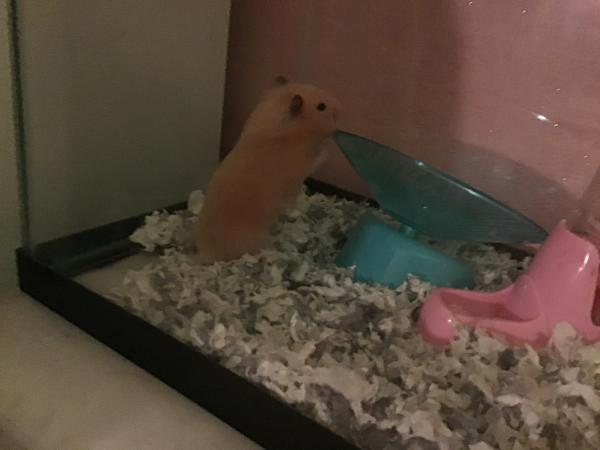 Hey, My blonde Syrian hamster just died suddenly, and I noticed it was shivering/shaking just a few hours before her death. Anyone know what happened? I have a picture attached of her, I miss her, she was my 2nd hamster I ever owned.
Hey, My blonde Syrian hamster just died suddenly, and I noticed it was shivering/shaking just a few hours before her death. Anyone know what happened? I have a picture attached of her, I miss her, she was my 2nd hamster I ever owned.
